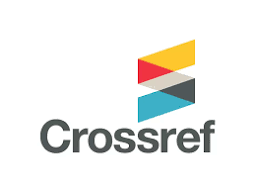Hematological Response to Imatinib Mesylate in Chronic Myeloid Leukemia in a Tertiary Care Centre
Keywords:
Chronic myeloid leukemia, blast crises, chronic phase, accelerated phase, Hematological response, Imatinib mesylateAbstract
Objective: To determine the hematological response to imatinib therapy in cases of chronic myeloid leukemia, hence determining the effectiveness of imatinib in our population.
Methods: This cross-sectional study was conducted in Pathology Department, Hayat Abad Medical Complex (HMC) hospital, Peshawar, from October 2013 to March 2014 (6 months duration). About 99 cases of Chronic Myeloid Leukemia (CML) in chronic phase, of all ages and both sexes, diagnosed through peripheral blood smear and bone marrow examination, and showing BCR-ABL translocation by Fluorescent in situ hybridization technique (FISH) were included in the study. The sampling technique used was Non-Probability purposive sampling. Patients who were nonconsenting, BCR-ABL negative, those in accelerated phase and blast transformation were excluded from the study. All the cases were given 400 milligrams of imatinib mesylate. Hematological response was assessed by determining hemoglobin level, red cell count, total leukocyte count and platelet count on monthly basis for six months of therapy. The findings were recorded, and results were made. Quantitative variables were calculated via Mean and standard deviation. Frequency and percentages were used for qualitative variables.
Results: About 99 patients were included in the study for determining hematological response to imatinib mesylate for period of six months. About 57 (57.6%) cases were male while 42 (42.4%) cases were female. Male to female ratio was1.4:1. Age range of the study population was 21 – 60 years (mean: 39 ±8.1SD). The mean hemoglobin levels improved from 9.96±2.14 g/dL at the start of therapy to 12.45±0.97 g/dL at sixth month of therapy in males and a gradual improvement from 9.15±1.86 g/dL to 11.86± 0.98 g/dL in case of female patients. The mean red cell count improved from 3.24±0.60 millions/mm3 to 4.19±0.30 millions/mm3 in male patients and from 3.06±0.54 millions/mm3to 4.02±0.32 millions/mm3 in female patients. The mean Total Leukocyte Count at the start of therapy was 123421.7±117547.9 thousand/mm3 and 134782.5±110407.2 thousand/mm3 for male and female patients, respectively. After six months treatment these levels improved to 7264.3±1882.2 thousand/mm3 and 8014.6±3810.8 thousand/mm3 for male and female patients respectively. The mean Platelet count lowered from 508017.5±426502 cells/mm3to 232482.5±108276.5 cells/mm3 in case of male patients and from 419857.1±256539.5 cells/mm3to 213278.6±89839.02 cells/mm3 in female patients at start and conclusion of imatinib mesylate treatment, respectively. Thus, the blood counts greatly improved in response to imatinib mesylate therapy at the end of 6 months.
Conclusion: Imatinib is highly effective in our setup as it successfully improved the blood counts and no
resistance was reported in any of the cases. It can be used as first line treatment option.
Downloads
Published
Issue
Section
License
Copyright (c) 2019 Nazish Farooq; Muhammad Ihtesham Khan, Abid Jameel

This work is licensed under a Creative Commons Attribution-NonCommercial 4.0 International License.
Readers may “Share-copy and redistribute the material in any medium or format” and “Adapt-remix, transform, and build upon the material”. The readers must give appropriate credit to the source of the material and indicate if changes were made to the material. Readers may not use the material for commercial purpose. The readers may not apply legal terms or technological measures that legally restrict others from doing anything the license permits.


